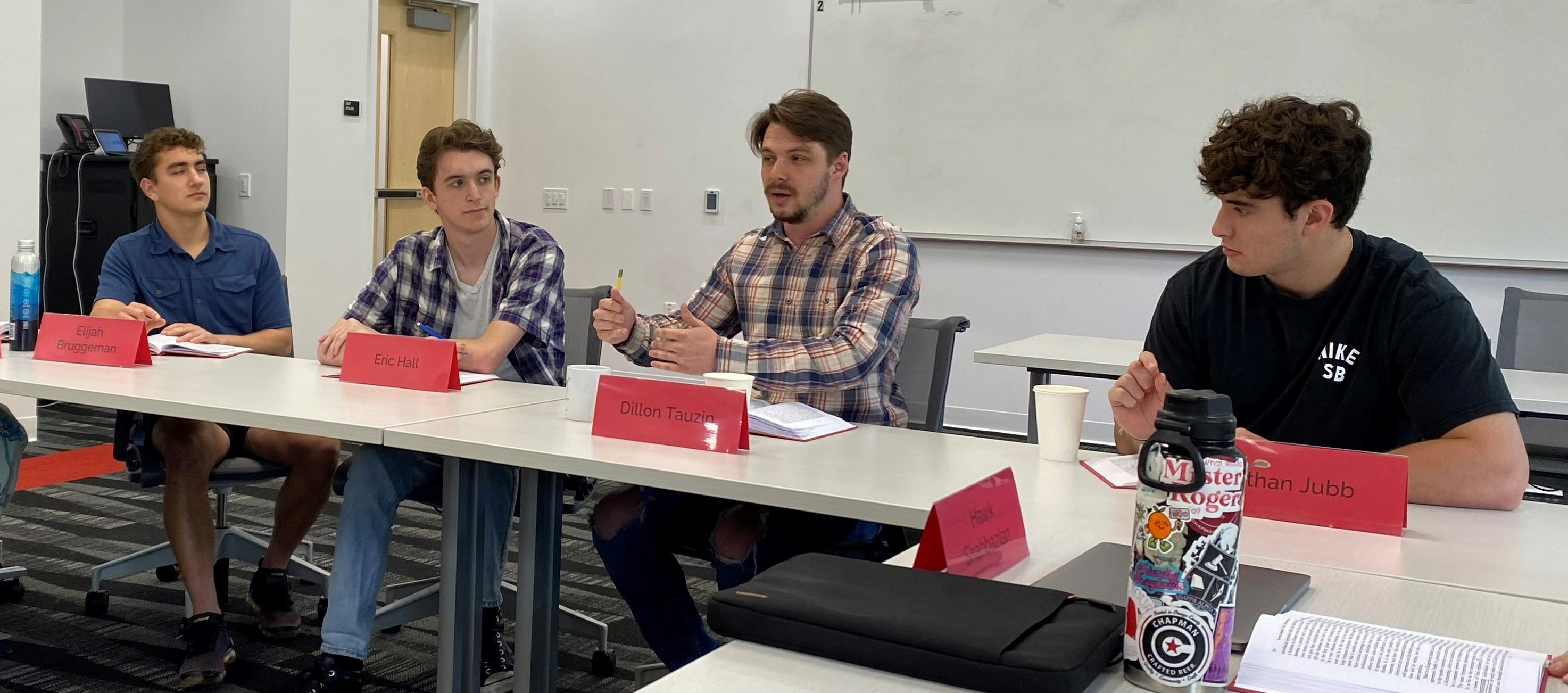Summer Scholars
Program Dates: June 8 - July 10, 2026
Applications will be open in through February 27, 2026.
APPLY HERE
We will be hosting approximately 10 undergraduate students for five weeks as Summer Scholars. Summer Scholars get an opportunity to "live the life of the mind" as part of an intensive program from which many participants have subsequently gone on to graduate school and careers in academia. Participants will meet each day from 9:00 a.m. until 5:00 p.m. to work as research assistants with faculty mentors from the Smith Institute.
The scholars and their mentors will also meet daily as a reading group to discuss papers in experimental economics, as well as works of economics and philosophy like Deirdre McCloskey’s The Bourgeois Virtues, Adam Smith’s The Theory of Moral Sentiments, F.A. Hayek’s The Sensory Order, Michael Polanyi’s Personal Knowledge, and Ludwig Wittgenstein’s Philosophical Investigations and works of literature like John Milton’s Paradise Lost, Johann Wolfgang von Goethe’s Faust, Mary Shelley’s Frankenstein, Fyodor Dostoevsky’s The Brothers Karamazov, and Lewis Carroll’s Alice in Wonderland.
Summer Scholars will receive a fellowship of $3,600. A limited number of fellowships also include free lodging. Please indicate in your application if you need lodging to participate.
The Summer Scholars program is generously supported by an Educational Entrepreneurship Grant from the Institute for Humane Studies.
Students may simultaneously apply to both the Summer Scholars program at Chapman University and the Summer Scholars Writers Retreat in Montana.
Directed and Edited by Emma Nguyen, 2025 Summer Scholar and Chapman University Class of 2026.
